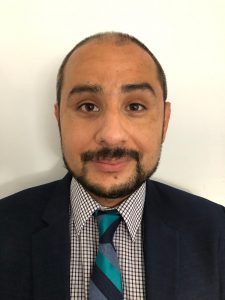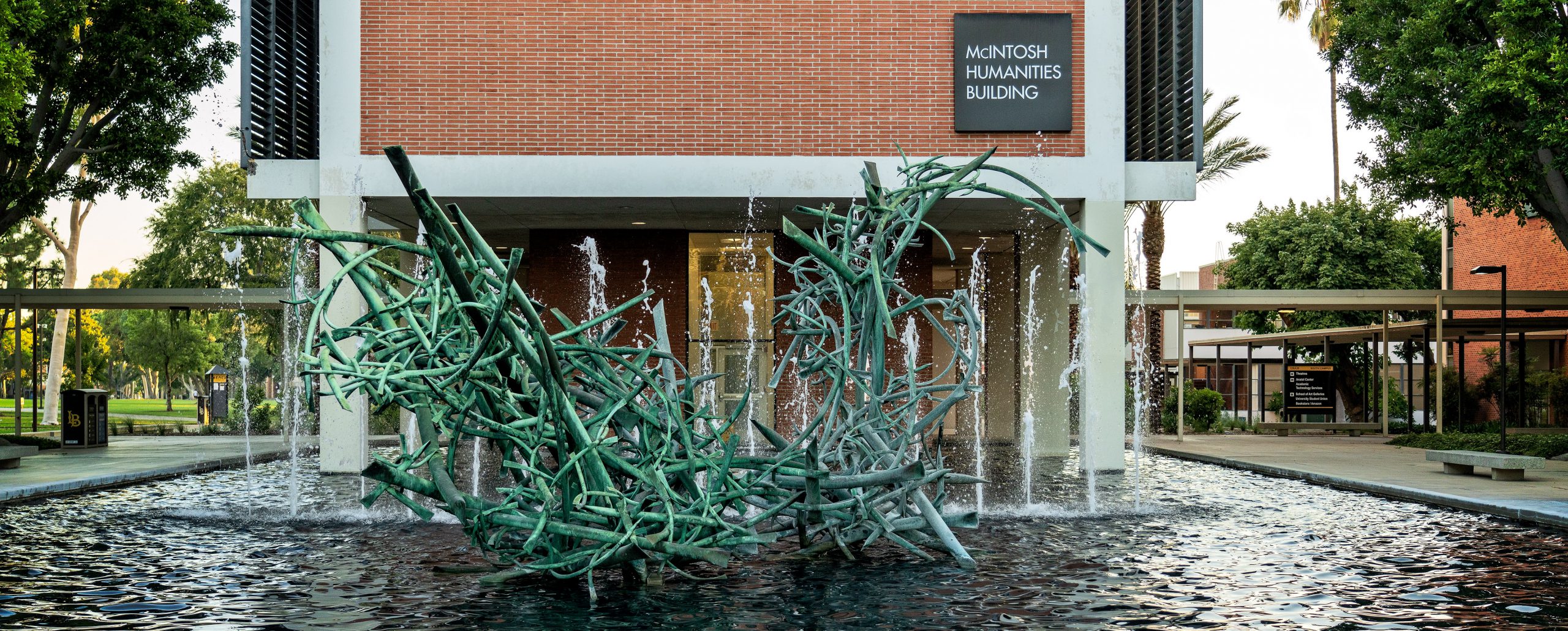CLA Welcomes Environmental History Specialist to Faculty This Fall
October 5, 2020 A specialist in Middle East and environmental history, Dr. Isacar Bolaños provides important insight into how humanity’s relationship with the natural world has changed the course of human events. His research on the ways in which natural environmental disasters shape government decisions in the Middle East is more relevant than ever as nations adjust to the COVID-19 pandemic.
A specialist in Middle East and environmental history, Dr. Isacar Bolaños provides important insight into how humanity’s relationship with the natural world has changed the course of human events. His research on the ways in which natural environmental disasters shape government decisions in the Middle East is more relevant than ever as nations adjust to the COVID-19 pandemic.
This fall, Dr. Bolaños will bring his insight and expertise to CSULB when he joins the College of Liberal Arts as an assistant professor of history. He cites the diverse student body and excellent history department as the reasons he was attracted to the campus.
“CSULB has an excellent record of awarding B.A.s in history,” he says. “As a new faculty member, this makes it very exciting to work at a university where students are eager to learn the ins and outs of history as an academic discipline. Combined with the diversity of the student population, it made CSULB the perfect place to start my career.”
Dr. Bolaños will be teaching classes in the Methodology of History, Contemporary World History, and Change and Continuity in the Modern Middle East in the fall. He credits undergraduate history courses for sparking his interest in the subject.
“I originally wanted to be a marine biologist,” he says. “Eventually I took a general education course on the history of the Middle East, which at the time was all over the news. I wanted to get more insight into what was going on in that region.”
The course was so interesting that he was hooked, and soon he began taking more history courses. Eventually, he decided to become a history professor focusing on the Middle East. He cites excellent teachers for inspiring him to pursue a teaching career.
“I understood early on the importance of education and its potential to transform people’s lives,” he says. “One of the most satisfying things about teaching is being able to introduce students to a new field and new ways of thinking.”
Dr. Bolaños’s teaching and research is geographically focused on the Islamic world and on pandemics and responses to them. He examines the controversial practice employed on the Iraqi frontiers of the 19th century Ottoman Empire to control disease and migration through the practice of quarantine. Dr. David Shafer, chair of the history department at CSULB, says Dr. Bolaños will leave an indelible mark on the fields of Middle East history, environmental history and the history of disease — and on the students he teaches.
“Dr. Bolaños’s story will make him immediately relatable to our students,” Dr. Shafer says. “He is a first-generation university student, the son of political refugees from Nicaragua, who grew up in California. He is a perfect example for our diverse student body of the transformative nature of education. The history department is thrilled to work with Dr. Bolaños and to count him as a colleague.”
Before joining the faculty at CSULB, Dr. Bolaños was a visiting assistant professor at Loyola University Maryland, where he taught Modern Middle East and North Africa, The Middle East in Film, and Literature and Global Environmental History classes. He holds a bachelor’s degree in history from UC San Diego, a master’s degree in Near Eastern studies from the University of Arizona, and a doctorate in history from Ohio State University.
In recognition of his exceptional dissertation “Environmental Management and the Iraqi Frontier during the Late Ottoman Period, 1831-1909” at Ohio State University, Dr. Bolaños received the Outstanding Dissertation Award from the Ohio Academy of History in 2020.
In addition to teaching, Dr. Bolaños is working on a book titles “The Nature of Ottoman Iraq: State and Environment at the Margins of Empire, 1831-1917.” Based on his dissertation and new archival research, the book examines the way in which natural environmental disasters shaped the history of the Ottoman Empire during the 19th century.
As part of his ongoing research, Dr. Bolaños has three publications in progress that examine the history of the Middle East through environmental history perspectives: “Ottomanism, Arabism, and Regional Identity in Ottoman Iraq: An Analysis of Sulayman Faydi’s Views on Education and Poverty Relief during the Young Turk Period,” “The French Connection: Water, Informal Empire, and Foreign Technocrats in Hamidian Iraq,” and “Environmental Imaginaries of Ottoman Iraq.”
Profile story by Kevin Bollman
